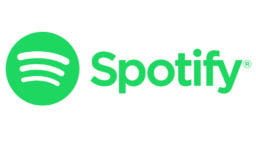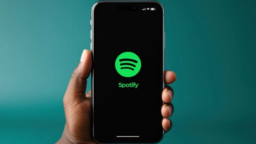We don’t need to examine every celebrity-baiting aspect of Nicki Minaj’s stinging tirade regarding the failure of her new album, Queen, to hit No.1 in the US this week. Mainly because, if we did, we’d all be here till October.
What we do need to examine: the fact that much of what she tweeted on Sunday (August 19) speaks volumes about recent changes in the music business, the direct impact they’re having on the artist community – and the charts that superstars use to measure their success.
The first subject to tackle: a growing trend for artists and labels to (arguably) game the Billboard 200 by using ticket and merch bundles to flog new records.
This tactic has worked well for the likes of Dave Matthews Band and P!nk over the past year – who have both gained recent No.1 Billboard 200 albums partly by pushing LPs baked into ticketing deals.
And now it’s worked handsomely for Travis Scott, who snatched the No.1 prize from Minaj on Sunday (August 19) in Astroworld’s second week of availability.

The big difference between Scott and his ticket-bundling predecessors is that the Texan rapper sold pre-sale ticket access – bundled with Astroworld – to shows that hadn’t even been announced yet (much to Minaj’s fury).
The bigger, more uncomfortable problem at the center of this disorder, however, has little to do with tickets.
It’s this: the music industry now doesn’t really seem to have much of a clue what an ‘album’ actually is – or, equally, how to measure its legitimate consumption.
In recent months, the US music business has regularly fixated on a weekly commercial ranking of albums – the Billboard 200 – where the No.1 record’s ‘sales’ are actually dominated by ‘streaming equivalent albums’.
“The music industry now doesn’t really seem to have much of a clue what an ‘album’ actually is.”
In other words, something that started off as an ‘equivalent’ album metric (streaming) to a dominant album metric (sales) is now demonstrably bigger than the traditional metric which gave birth to it.
The inevitable, existential conclusion of this ‘album chart’ mess will surely come in a few years: how can one thing remain an ‘equivalent’ to another thing which, comparatively, barely exists?
Take Astroworld as an example of this trend: the record ‘sold’ 205,000 copies of ‘streaming equivalent albums’ in the US last week, according to Billboard. Yet 61% of those ‘sales’ weren’t actually sales at all; they were streams of a random combination of tracks.
The most heinous example so far: Drake’s Scorpion stood at the summit of the Billboard 200 chart after its second week on sale (July 12) with 29,000 actual album sales vs. 288,000 streaming equivalents.
See below: just 8.7% of Scorpion’s weekly ‘album sales’ on the Billboard 200 were actually album sales.
To further refine this madness into a pithier take-home for you: the weekly US album sales chart is now starting to become dominated by albums which…. aren’t actually selling very many albums.


In Scott’s case last week, Astroworld clocked up 78,000 actual sales – of which, Minaj claims, 50,000 were shifted via bundles on his site.
The other 127,000 ‘sales’ were pretty much all from streaming equivalents.
(We should point out that, in its previous week on sale, Astroworld attracted a very healthy 270,000 actual album purchases in the US.)
No wonder the likes of Dave Matthews Band – hardly fighting with Drake and Travis Scott in ‘Kings of streaming’ terms – have opted to leverage another legitimate popularity metric, tickets, to push them up the Billboard 200.
Whether this is right or wrong is a matter of debate, and there are good arguments on both sides.
Dave Matthews Band, for example, could point out that 98% of their ‘album sales’ when their latest LP, Come Tomorrow topped the Billboard 200 in June, were actual sales of their actual album.
Compare that to the livid Ms. Minaj’s Queen, which sold 185,000 ‘albums’ last week – of which just 42% were from actual album sales.


There are two key issues going on here.
The first – the suggestion that album bundling with tickets/merch is being rampantly ‘gamed’ and has spiralled out of control – can probably be dealt with by Billboard.
Minaj herself suggested that “Billboard says they’ll change the rules coz of this” – hinting that the US chart arbiter may soon stamp out chart-eligible albums being bundled with tickets (and perhaps merch) for shows which haven’t yet been announced.
As for the streaming/sales mix of the Billboard 200, that’s far more complicated.
The latest Billboard 200 methodology posits that an ‘album equivalent’ counts as 1,250 premium track streams, or 3,750 ad-funded track streams, of a given record.
In other words, you need to stream a track three times as much on a ‘free’ tier as on a paid tier to have the same impact on the chart.

Billboard inevitably copped some heat, and won some praise, for downgrading ad-funded streams in its methodology this summer. (YouTube and Spotify wouldn’t have loved it – Apple Music would have adored it.)
But here’s something for the industry to really think carefully about in light of Minaj’s series of tweets.
It’s a line from her scattergun diatribe which, amid the Kylie Jenner/Travis Scott/Billboard attacks, rather lost the headline potency it deserved.
“[Spotify has] been giving away my music for free for years and I am one of the top Spotify artists of all time.”
This is quite an emotive turn of phrase, no? “Giving away my music for free.”
It rather suggests that Minaj feels like the victim of industry skullduggery which has devalued her art. It also suggests (“giving away my music”) that she feels that she did not have an appropriate level of agency in this decision.
Possibly, because she was told: don’t force your fans to pay something to listen to your music or… you’ll hurt your chances on the Billboard 200.

The tide may now be turning on that argument.
With streaming ‘equivalents’ drowning out true album purchases on the Billboard 200, ad-funded streams have already been downgraded once this year.
Meanwhile, artists like Minaj (an original TIDAL artist shareholder, don’t forget) have started speaking out about how they really feel about “free”.
Could an artist-driven argument now start to snowball, calling for Billboard (and the industry) to completely banish non-paid-for streams from the US albums chart?
That’s what happened in France back in April, when SNEP/Gfk ruled that only true sales and premium streams would count towards the market’s Le Top Albums list.
A mid-year report from SNEP, released in July, proudly suggested that the country’s chart had “evolved” – while revealing that one of the biggest benefits of the move had improved the lives of its local artists.
No less than 19 of the Top 20 albums in France in H1 2018 were from French acts – mainly, it’s worth saying, French hip-hop acts.
In contrast to Nicki Minaj, none of these artists, to the best of our knowledge, has tweeted to complain about how their chart is put together.Music Business Worldwide





